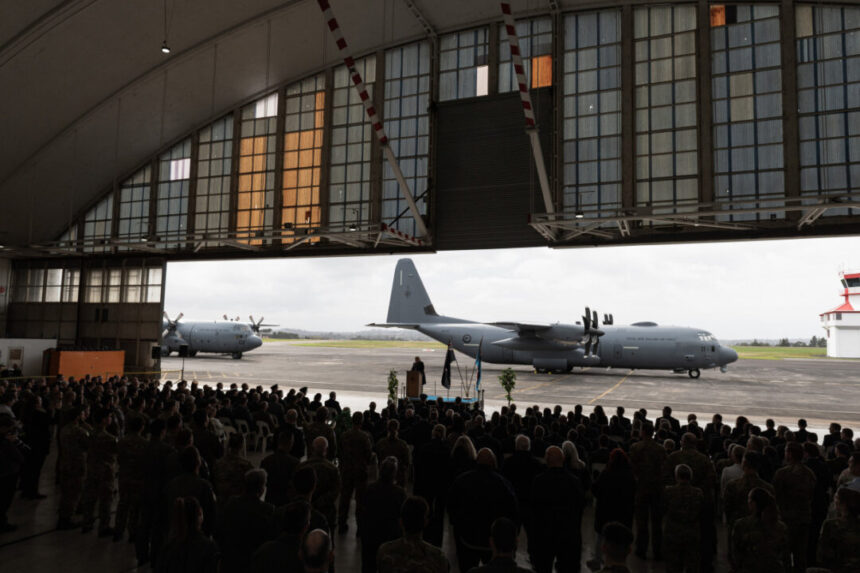The Chief of Defence Air Marshal Tony Davies has revealed that the New Zealand Defence Force (NZDF) is facing a budget blowout of $360 million (US$211 million), leading to the need to consider cutting or delaying various programs. Davies informed MPs during the NZDF’s appearance at Parliament that significant cuts, including $50 million to the military and civilian workforce in the 2025/26 financial year, are necessary.
The Public Service Association (PSA) expressed concerns that these budget cuts could jeopardize New Zealand’s national security and disaster response capabilities, especially in the Pacific region. The PSA reported that around 200 civilian workforce roles out of approximately 3,000 have been disestablished, with 144 voluntary redundancies and other vacant positions remaining unfilled.
The civilian union workers went on strike after the Defence Force refused to offer any pay rise during negotiations for a new collective agreement. This led to the minister of defence approving uniformed personnel to undertake the work, a power not utilized since 2001.
PSA Assistant Secretary Fleur Fitzsimons emphasized the strain on the civilian workforce, stating that it is currently stretched to its limits. The government’s focus on tax relief for landlords over national security and a combat-ready defence force supported by civilian personnel has raised concerns about the country’s defense capabilities in the face of an unstable geopolitical climate.
Despite the challenges, Davies and other senior officers are working on a plan to address the budget constraints. They acknowledged that certain activities would need to be paused or discontinued to ensure that essential operations such as flying, sailing, shooting, and deploying can continue.
While key missions are still being carried out, training, travel, and international partnerships may be affected by the budget cuts. Davies highlighted the need for transparency in addressing the workforce program challenges and emphasized the importance of ongoing communication with stakeholders.
Defence Minister Judith Collins noted that the NZDF received additional funding in the recent budget, but is also facing increased fuel and ammunition costs, as well as the maintenance of infrastructure and housing. Collins mentioned that the acquisition of new technology is vital for enhancing New Zealand’s defense capabilities, although the specifics of how this will be achieved within the current budget constraints are yet to be disclosed.
Overall, the NZDF is grappling with financial challenges that require tough decisions to be made to ensure the continued effectiveness of the country’s defense operations. The government’s commitment to national security and defense capabilities is being tested in light of the budget pressures faced by the NZDF. Please rewrite the following sentence so that it is different but still conveys the same meaning:
“The cat is sleeping peacefully on the windowsill.”
“The peaceful cat is sleeping on the windowsill.”
Source link






